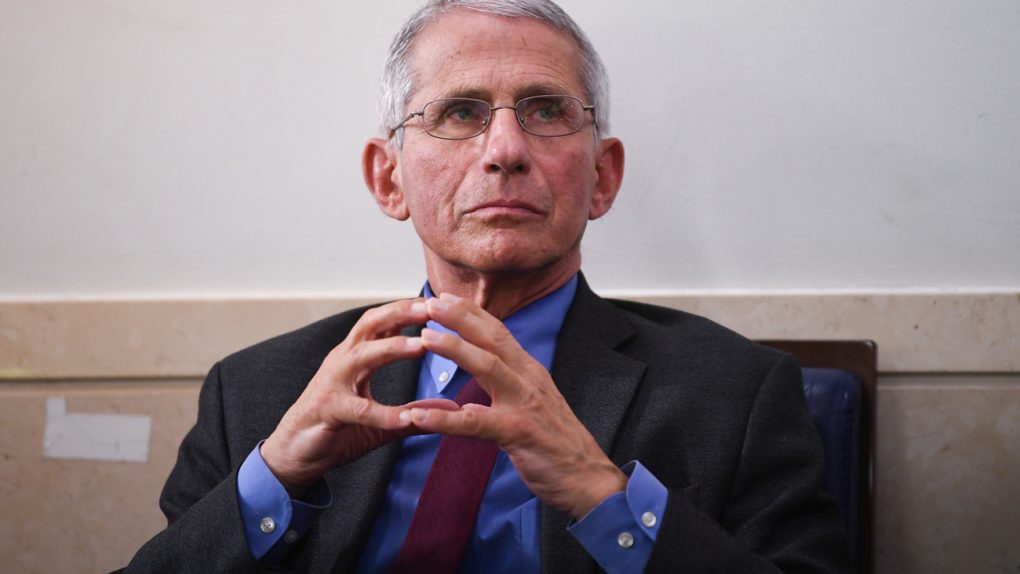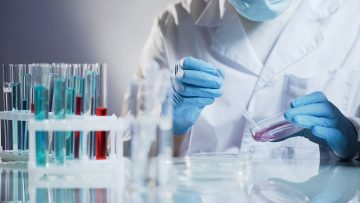- Dr. Anthony Fauci said that he’s “cautiously optimistic” about the coronavirus vaccine Moderna is working on.
- The National Institute of Allergy and Infectious Diseases (NIAID) is one of Moderna’s partners on the COVID-19 drug, but the agency has been quiet this week on the heels of Moderna’s preliminary announcement.
- Fauci explained that the COVID-19 vaccine candidate proved to be safe for test subjects and effective, meaning it was able to train the immune system to develop the neutralizing antibodies that could stop the novel coronavirus from reaching cells.
- Visit BGR’s homepage for more stories.
NIAID director Dr. Anthony Fauci is one of the leading and most popular members of the White House Coronavirus Task Force. Fauci routinely appears on TV and in interviews to detail various efforts to stop the spread of COVID-19 and find a cure for the novel coronavirus. The doctor has spoken about the viability of vaccines on several occasions, most recently saying that the first vaccine could be just a few months away. He also authored a paper together with other health experts detailing a plan for this particular type of COVID-19 drug, where they said that a single vaccine might not be enough for the world’s needs.
Moderna’s vaccine candidate was the first to reach Phase 1 human trials a few months ago, and the company delivered its early results on the matter earlier this week. At the time, NIAID did not express an opinion on the issue, but now Fauci says he’s cautiously optimistic.
“The question is, was it immediately safe? Clearly, it was,” Fauci said during an appearance on CNN. “But importantly, it induced the kind of response that you would predict would be protective against the virus, and that’s what’s called neutralizing antibodies.”
He went on to explain that a vaccine should train the immune system to produce different types of antibodies. Binding antibodies would bind to a pathogen, as the name suggests, but they won’t block it from interacting with human cells. Neutralizing antibodies are the antibodies you want, which would bind to the virus’s spike protein that allows it to attach itself to cells. Moderna’s vaccine generated “neutralizing antibodies at a reasonable dose,” Fauci explains, and that’s why he’s cautiously optimistic about the results.
Moderna was criticized earlier this week after reporting its early findings via a press release rather than a study. The company only provided limited results for eight of the 45 volunteers who received various doses of the RNA vaccine candidate and who developed neutralizing antibodies. The company did not explain whether those antibodies would be enough to block the virus. It also made no mention of when a study would be published in a medical journal.
At the time, it was also observed that NIAID did not chime in with any comments about the vaccine candidate, although the agency is one of Moderna’s partners on this effort. Comparatively, Fauci himself detailed the conclusions of the remdesivir trial before the study was published — that study still isn’t available.
It took a few days, but Fauci now has an opinion on the results, explaining that “although the numbers were limited, it was quite good news because it reached and went over an important hurdle in the development of vaccines. That’s the reason why I’m cautiously optimistic about it.”
In previous interviews, Fauci says that the first COVID-19 vaccine might be available as early as the start of 2021 if everything goes well. He explained in a different interview that it was Moderna’s drug that gave him such hopes. Fauci and some of his colleagues penned a paper describing the daunting task of creating a COVID-19 vaccine. This process includes research and development steps but also making sure that manufacturing capacity and logistics are in place for distribution. They wrote that a single COVID-19 vaccine would not be enough to meet demand.
More research is needed to prove that Moderna’s candidate is a viable option for preventing COVID-19. The US government has invested in other candidates as well. Earlier this week, the US secured 300 million doses of Oxford’s promising coronavirus vaccine via an AstraZeneca investment of $1.2 billion. Like Moderna’s drug, the Oxford compound is currently in clinical trials and researchers haven’t published any results pertaining to its efficacy or safety on humans. There are no guarantees that any of these candidates will work.








